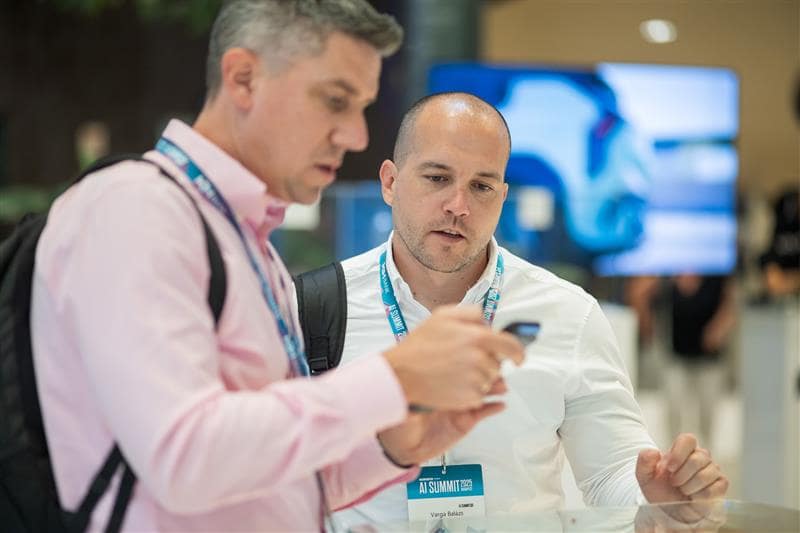Related Stories
Share this article
Key Takeaways from AI Summit Budapest 2025: From Internal Efficiency to Agentic Innovation
AI Summit Budapest 2025 gathered technology leaders, practitioners, and innovators to explore how artificial intelligence is shaping industries and organizations. While the event highlighted just how varied adoption levels still are across the region, it also surfaced two critical themes that stood out for us at QBCS:
- The strongest immediate value for enterprises lies in AI applied to internal processes.
- The long-term disruption will happen as models get better and better.
These insights not only validate the direction we’ve been taking with our retail-focused AI solutions but also highlight the future trajectory of AI as a driver of transformation across industries.

Adoption Levels: Laying the Foundations
Many of the sessions focused on introductory AI topics, such as prompting best practices and the use of conversational models like ChatGPT. This indicates that for many organizations, the focus is still on building foundational knowledge and early adoption.
At the same time, multiple agentic workspace solutions were showcased. Global technology leaders (like Amazon) have been in this space for a while now, and with several approaches overlapping it’s clear this is an area of intense experimentation. For us, this reinforced the importance of pursuing AI strategies where differentiation is stronger and value delivery is clearer.
Where AI Creates Value Today: Internal Processes
One recurring message across the summit was that AI generates the most consistent value when applied to internal workflows.
- Lower risk: AI applied to internal processes is easier to control and govern compared to customer-facing applications, which bring higher reputational and regulatory risk.
- Faster ROI: Use cases such as demand forecasting, financial planning, or inventory management are measurable, repeatable, and data-rich, making them strong candidates for AI-driven improvement.
This mirrors what we see in our own retail projects, where the fastest wins come from agent-managed processes behind the scenes rather than direct customer interactions.
A Shared Challenge: User Adoption
Another candid theme was the difficulty of adopting AI tools within software development teams. Many organizations described slow progress, uneven adoption, and the need for new skill sets. This mirrors what we’ve experienced ourselves, and it was encouraging to hear that these challenges are universal rather than unique.

Looking Ahead: Agent-to-Agent Collaboration
One interesting application explored AI agents working together, not just executing predefined tasks, but interacting, debating, and iteratively solving problems in new ways.
This opens possibilities far beyond incremental efficiency gains:
- Novel solutions: Agents can approach problems from perspectives humans might not consider, producing out-of-the-box outcomes.
- Disruptive impact: Instead of simply optimizing today’s supply chains, assortments, or pricing models, agent collaboration could design entirely new ones.
- Industry transformation: Such systems could spark innovations that reshape entire sectors, not just processes within them.
For retail specifically, this could mean breakthroughs in how assortments are built, how pricing architectures are designed, or even how physical and digital store formats evolve.

Our Perspective
AI Summit Budapest 2025 confirmed two critical insights for us:
- Today, one of the best applications of AI is internal processes, delivering reliable, measurable value in processes where risks are low and data is rich.
- Tomorrow, agent-to-agent collaboration could redefine industries, shifting AI from an optimization tool into a source of entirely new business models.
At QBCS, we are helping our clients prepare for both horizons: capturing immediate ROI through agent-managed internal processes while building the foundations for the next wave of agentic innovation.
If you’re interested in exploring how these ideas can be applied in your organization, we’d be happy to start the conversation. Get in touch with our team today!



